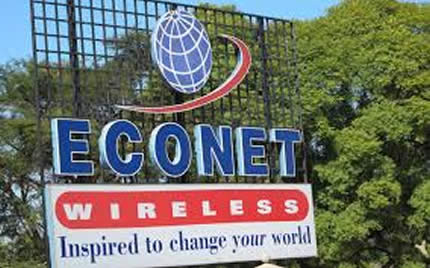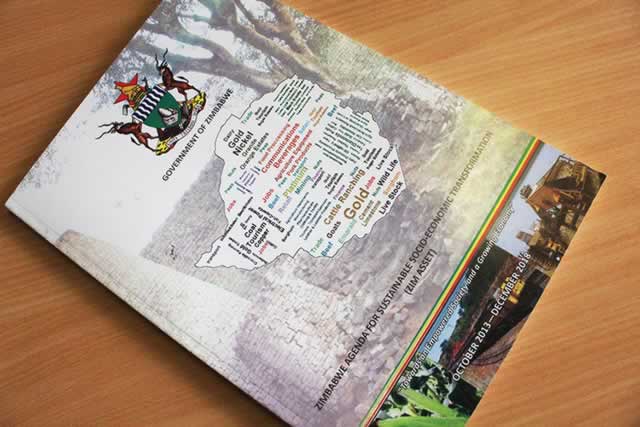Self-testing: Brave new approach to HIV fight

Conrad Gweru Features Correspondent
Total elimination of HIV is a herculean task for the government and its development partners as it calls for innovative approaches in HIV prevention, treatment and care.
As the world is working towards the finalisation of the post-2015 development agenda, partners in HIV and AIDS programming have agreed to an era that will see nothing less than ending the AIDS epidemic by 2030 with the year 2020 and its “90-90-90” strategic targets being the litmus test.
According to the 2020 target, 90 percent of all people living with HIV will know their HIV status, 90 percent of those diagnosed with HIV infection will receive sustained antiretroviral therapy and 90 percent of all people receiving antiretroviral therapy will have viral suppression, which means having very low levels of HIV in the body, even though the virus is still there. Having gone for more than three decades since the first HIV case was discovered, globally there are, however ,an estimated 19 million people who do not know their HIV status.
With these statistics, it has been universally agreed that the 2020 and 2030 targets are pinned around knowledge of an individuals’ HIV status, hence the need to introduce HIV self-test kits as an alternative for HIV testing.
According to the Joint United Nations Programme on HIV and AIDS (UNAIDS), HIV self-testing enables individuals to test themselves for HIV in private and also provides an opportunity for people to test themselves discreetly and conveniently. Self-testing can help reach those who are either not able to access or unlikely to use current HIV testing services due to privacy issues or lack of convenience.
Statistics obtained from the Ministry of Health and Child Care point out that an average of 146 265 people are tested for HIV every month.
Of those tested, an average of 95 percent come back for their HIV test result in Zimbabwe, based on the 2014 HIV Testing and Counselling (HTC) data.
Furthermore, the Zimbabwe Demographic Health Survey (ZDHS) 2010 — 2011 points out that 36 percent of men and 57 percent women had never been tested for HIV. However, the percentage of people who reported to have been tested and knew their status in 2014 is around 66 percent. Dr Owen Mugurungi, Director of the AIDS and TB Unit in the Ministry of Health and Child Care (MoHCC), said the ministry was always looking at possible solutions that respond to the needs of communities.
“As a ministry, we continue to introduce more initiatives that respond to the needs of our communities so that they can access HIV testing and counselling (HTC). HIV self-testing has not yet been introduced (nationally) in Zimbabwe. We are currently running it as a pilot in a few districts and the result of that will inform the strategic direction regarding self-testing in Zimbabwe. This will inform issues of acceptability and feasibility and what more information is needed before one opts for self-testing,” he said.
Dr Agnes Mahomva of the Elizabeth Glaiser Paediatric Aids Foundation-Zimbabwe said it was high time HIV and AIDS programmes were more community-based than health facility-based, especially HIV testing services.
“Our HIV response in Zimbabwe has been outstanding, HIV prevalence has come down and so has mother to child transmission of HIV rate which was about 30 percent in 2009 is now about 5 percent in 2014. We have however tended to focus our support to the HIV response on activities in the health facilities. Now is the time to strengthen support to activities in the communities. For us to strengthen the HIV response in the communities, we need to ensure that everyone knows their HIV status, that is, everyone has easy access to an HIV test. We, however, need to ensure that self-testing is not only introduced but is also strongly linked to counselling and psychosocial support in the communities,” she said.
Dr Karin Hatzold, Deputy Country Director Population Services International (PSI) Zimbabwe, said the world was in need of HIV self-testing programmes that are effective, efficient and ethically sound, with adequate post-test support services, hence the urgent need to provide evidence to inform policy and programming decisions at both global and national levels, particularly for high burden countries.
“With the support of UNITAID (A global funding channel for HIV, Malaria and TB), MOHCC together with PSI and its partners will conduct the world’s largest evaluation of HIV self-testing to date. Over the course of the two-year project, nearly 400 000 self-test kits will be distributed in Zimbabwe. “These pilots will generate crucial information about how to distribute self-test products effectively, ethically and efficiently, and will answer key questions about the feasibility, acceptability and impact of this intervention.
“The project will use these results, and other emerging evidence, to support the establishment of appropriate policy and to encourage new manufacturers to enter the self-test market,” she said in a written response to questions from this reporter.
She further pointed out that without knowledge of their status, individuals cannot access life-saving HIV care and treatment.
“The MOHCC Zimbabwe goal for antiretroviral therapy (ART) is to reach 81 percent of people living with HIV with ART at any given time. HIV self-testing will help to identify people who are HIV positive and link these into HIV treatment and care services. It is hoped that HIV self-testing will identify people living with HIV at an early stage of infection, making treatment success easier and also ensuring that people who are HIV infection do not continue transmitting HIV as they are aware of their status,” said Dr Karin Hatzold.
Tadiwa Pfupa, a Communications Officer, echoed the primacy of knowing one’s status.
He said it would be good for the country to have as many people as possible knowing their status, through ethical means.
“This will allow those who need to be on treatment to be initiated on ART programmes,” he said.
According to a World Health Organisation 2013 ART guideline report, HIV self-testing takes place in many countries that do not have regulations or policies on the sale, distribution or use of HIV rapid diagnostic tests for self-testing. In order to improve both formal and “informal” HIV self-testing, a number of policies and regulations will need to be adopted or developed.
Tinashe Mundawarara, Zimbabwe Lawyers for Human Rights (ZLHR) Programme Manager, said that HIV self-testing should be rolled out in a manner that upholds set minimum standards and fundamental rights and freedoms.
“With respect to autonomy, HIV self-testing increases autonomy but, on the other hand, it can be used to limit other people’s autonomy, for example, violence against women and children in abusive families or relationships. Informed consent, privacy and confidentiality also come into the picture and may be affected negatively or positively. Vulnerable groups and populations may also be affected negatively in light of power dynamics. For example, daughters-in-law, sons-in-law and domestic workers may be coerced in the family or work place relationship to take HIV tests.”
While agreeing that HIV self-test kits would be helpful, Itai Rusike, Director for Community Working Group on Health, fears that positive results may not be handled well by community members in the absence of professional counsellors.
What is becoming clear in the discourse is that the self-testing phenomenon is likely to revolutionarise the approach to the epidemic.
Feedback: [email protected]








Comments